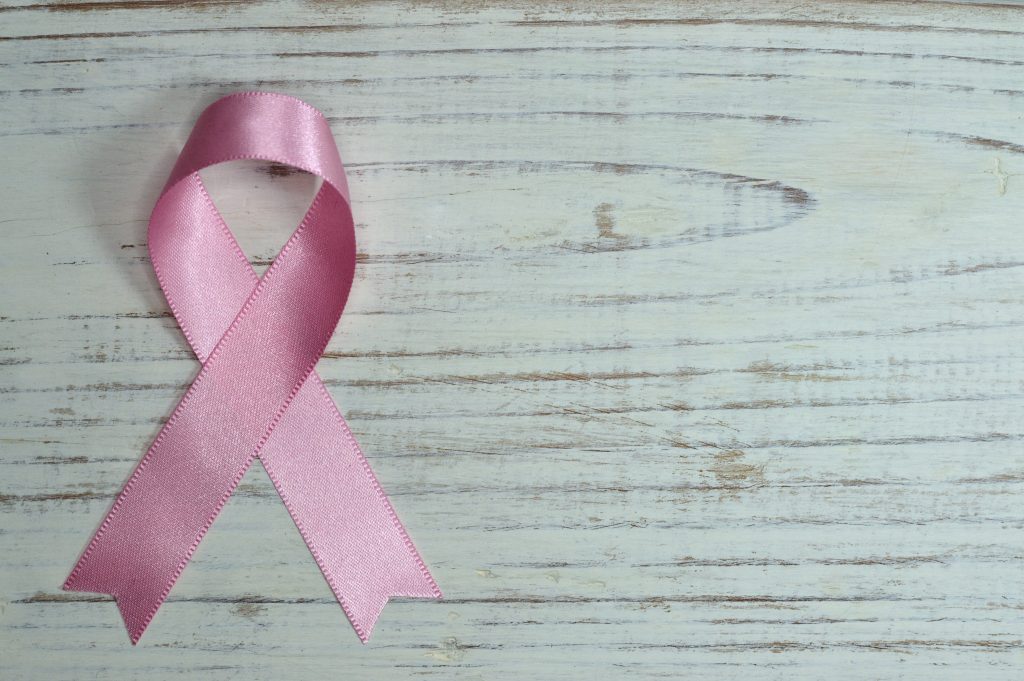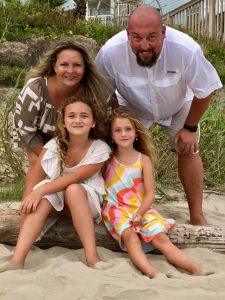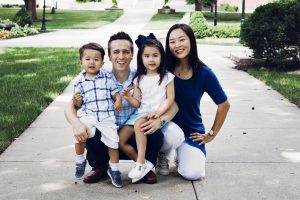Ask The Expert, Focusing on Breast Cancer Awareness & Featuring 3 Brilliant Katy- area Doctors
Today, 1 in 8 women will be diagnosed with breast cancer at some point in their life. One in Eight. So as we’re coming to the end of October, which is Breast Cancer Awareness Month, we want to inspire you all to continue the conversation and remember these statics, well after the calendar moves to November in a couple of days. Truly, we believe we need to remain aware at all times, not just in October. Educating ourselves, striving for more information, raising money for advancements in technology to find a cure, supporting those with the diagnosis or those in remission- it all empowers us.
 Did you know you should have a risk analysis for breast cancer starting at age 30? Your first mammogram is recommended as early as the age of 40. Doctors also recommend genetic testing if there’s a high risk of breast cancer in your immediate family.
Did you know you should have a risk analysis for breast cancer starting at age 30? Your first mammogram is recommended as early as the age of 40. Doctors also recommend genetic testing if there’s a high risk of breast cancer in your immediate family.
Each October, healthcare professionals, cancer survivors, community groups and others go to great lengths to spread the word about breast cancer because this disease is a concern for us all. With an estimated 252,000 new cases of invasive breast cancer diagnoses each year, and more than 40,000 deaths, the threat it poses is scary and it’s real. Our mission for this month’s Ask The Expert is to inform all of you amazing mamas following along on this platform and arm you with the tools you need to be aware. And we hope the physicians we chose to interview inspire you that even when you flip the calendar over to November, not to forget. Don’t stop spreading awareness, don’t stop asking questions, reach out to survivors, and continue learning everything you need to know about early detection and prevention.
For this series focusing on Breast Cancer Awareness, we gathered experts from multiple specialties that deal with many aspects of breast cancer, all the way from diagnosis, through treatment, and even on to survivorship.
Our Expert Panel is Composed of 3 women physicians:
Dr. Candy Arentz of Houston Methodist Breast Surgery Partners
Dr. Suzie Chang of Katy Plastic & Reconstructive Surgery
Dr. Sri Yalamanchili of Solis Mammography and Rose Imaging Specialists
All three female physicians are located right here in Katy, TX and are mothers themselves. Most importantly, they are passionate about raising awareness of this disease – as it can save so many lives and it definitely pertains to everyone – both young and old, and all women and men.
About The Doctors:
Dr. Arentz is a board-certified surgeon with a fellowship in Diseases if the Breast, practicing for over 8 years. She’s with Houston Methodist Breast Surgery Partners in Katy on 1-10 at Barker Cypress and is mama to two daughters, Bell (age 9) and Brooklyn (age 6). She lives in Katy with her husband, Jerry, and in her spare time she coaches her daughter’s Katy Youth Football Cheer Squad.

Dr. Chang is a board-certified plastic surgeon with specialization in aesthetic and oculoplastic surgery. She lives in Katy with her husband, her 4-year old daughter and her 2-year old son. Her practice, Katy Plastic & Reconstructive Surgery, is located inside the Memorial Hermann Katy hospital campus, on I-10 and 99. She loves living in Katy because there’s always some kind of adventure going on!

Dr. Yalamanchili is a board-certified radiologist, with subspecialty training in MRI and breast imaging. She’s a mother to two wonderful kids, ages 12 and 10, which she says is the most rewarding experience. She trained in the Northeast and moved with her family in 2010 to pursue a fellowship at MD Anderson Cancer Center. She’s a partner in Rose Imaging Specialists PA, which is the largest breast only private practice imaging group in the nation. Their group also has a partnership with Solis Mammography and Tops Surgical/USPI.

How do you treat breast cancer in your specialty?
Dr. Chang: “First, a little background information about Breast Cancer. Today, 1 in 8 women will be diagnosed with invasive breast cancer at some point in their life. That is not a small number. The role of the plastic surgeon in treating breast cancer ranges all the way from breast cancer detection to breast reconstruction after mastectomy/lumpectomy. For example, I know that Dr. Arentz works very closely with Dr. W. Ellsworth, plastic surgeon at Houston Methodist (West Houston campus) for breast reconstruction after her cancer resection surgeries. In this case, the role of the plastic surgeon is one of immediate reconstruction of the breast after cancer surgery.
In my practice, we provide all other breast procedures that involve improving the look of the breasts. This includes breast implant placement, breast implant revisions or removal, breast lifts, breast reductions, nipple reductions, inverted nipple corrections, etc.
As a plastic surgeon specializing in aesthetic/cosmetic surgery, usually patients come to see me when they do not like the appearance of their breast in one way or another. It may sometimes be after having babies or sometimes it is simply because the patient feels their breasts are too small/ too long/too big/ oddly shaped/ too asymmetric… Whatever the case, with breast surgeries, I always send any removed breast tissue for thorough evaluation to check for any hidden breast cancer or breast disease. In fact, studies have shown that there is up to 4% rate of diagnosing a hidden breast cancer during breast reduction cases.
Whenever I operate on the breast, the possibility of breast cancer is always in the back of my mind. So much so that it is a critical part of the patient questionnaire that all of my new patients have to fill out before their initial appointment.”
Dr. Arentz: “The role of the breast surgeon is one that ranges from diagnosis all the way to surgery for cancer removal. Anyone can come see me if they are worried about their breasts. A new lump or change in shape of the breast, nipple discharge or an abnormal mammogram… They don’t have to wait to be diagnosed with breast cancer. Also, high risk patients are welcome to come talk and see about preventions strategies. We have a clinical trial open for those women who are high risk. About half of my practice is benign breast disease.
I lead the breast program at Houston Methodist West. Our breast center treats women from diagnosis through treatment and into survivorship. I believe a multidisciplinary team is the best approach to treating patients with breast cancer. This allows the whole patient and her specific cancer to be treated in the best way possible. Sometimes the patient needs surgery first and sometimes they need chemotherapy first. This approach also allows the patient to have all surgical options available… such as if she wants to keep her breast and is she happy with the appearance of the breasts, or does she also want smaller or larger breasts? If she wants or needs a mastectomy, we can often do the reconstruction at the same time using implants or her own tissue. This is almost always done at the same time of removal of the cancer.”
Dr. Yalamanchili: “As the breast imaging radiologist, we evaluate patients who have been sent by their general physician for specific concerns about their breasts. We perform mammograms and same-day ultrasound test for patients with concerns such as lumps or nipple discharge. These tests are always performed with a physician as well as the technician. Our results are given to our patients on the same day, with a discussion about the test findings and doctor recommendations.
We always keep in close communication with the physician that sent the patients to our office for testing. If there is a suspicious finding on any of our tests, a biopsy is recommended. We perform biopsies directly in our offices and the pathology results for cancer diagnoses are directly phoned. We make sure that all of the important findings are directly conveyed as well as recommendations for surgical consult (like Dr. Arentz’s team) or further imaging such as MRI.’
What should women be doing for prevention, screening, etc.?
Dr. Arentz: “Women should have a risk analysis for breast cancer at age 30. This will allow for early screening to start for high risk women. The standard mammographic screening should be yearly and starting at age 40. Women should also know their family history. If they have multiple generations of women with breast cancer, women younger than 50 with breast cancer or men with breast cancer then they likely qualify for genetic testing. I offer this service in my office and have a genetic counselor on site. If a woman has a genetic predisposition for developing cancer then we have several ways to increase screening frequency or to reduce her risk of developing cancer.
Dr. Yalamanchili: “As a breast-imaging radiologist, we recommend regular monthly clinical self-examinations coupled with regular physician examinations. This really helps guide our imaging workups. Like Dr. Arentz mentioned, we also believe that annual screening mammography starting at age 40 is the best option for those that do not have a strong family history or risk factors that would suggest earlier imaging intervention. (Before that, baseline examinations are routinely done between the ages of 35-40.) I would also emphasize that proper self-care measures, including proper diet and exercise are important to minimize the risks of breast cancer.”
Dr. Chang: “We are all women at this table. As such, I believe that we should all be doing our monthly self-exam. Pick a day. Be consistent. And check yourself. Maybe at the first of every month, perform your monthly exam. Also, important to note, the breast extends into the axilla/armpit region. So please include this area in your monthly self-exam.
Dr. Arentz and Dr. Yalamanchili have mentioned the recommended age for starting yearly screening mammograms as 40 years of age. This is so important that most plastic surgeons, including myself, will not perform cosmetic surgery of the breast in this age range of patients without a recent mammogram. This is the standard of care for plastic surgery of the breast. Screening mammograms save lives by detecting EARLY breast cancers, before they have reached a critical stage. This is why we cannot stress its importance enough.
Additionally, while many breast cancers have a big hereditary component, there are real actionable ways to reduce your risk of breast cancer, these include things such as maintaining a healthy weight and cutting back on heavy alcohol drinking. So it is so important to take good care of yourself in all of these ways. In this case, I cannot stress enough the importance of self care. Truly, it is not selfish to practice self care.”
Can breast implants cause breast cancer?
Dr. Chang: “Breast implants are the most heavily-studied medical device by the FDA (Food and Drug Administration). From the first silicone breast implants of 1962 to today’s implants, no device has been under this degree of intense scrutiny. For a period from 1992 to 2006, the FDA banned silicone breast implants because of some fear that they may cause connective tissue diseases. These fears were found to be untrue and the FDA lifted that ban in 2006. So far, in the 50+ years of its existence, studies have shown that breast implants do not cause breast cancer.
However, if a patient has breast implants in place, it does have the potential to make detection of early breast cancer more difficult. Let me explain this a bit further. In a patient without implants, there are usually 4 standard views for the mammogram. In a patient with implants, there are at least 8 standard views for the mammogram. Because the implants are there, You have to take more pictures and more views to try to visualize all the way around the implants to try to check for potential hidden breast cancers.
When my patients are considering getting breast implants, my consultations provide all of this information along win other important factors regarding breast implant surgery. As a patient, you just have to keep all of this in mind when you make that decision for yourself.”
We have heard that there are new technologies – specifically in breast-imaging radiology that will aid in breast cancer diagnosis. Can you tell us more about this?
Dr. Yalamanchili: “We started promoting 3D mammography with research around 2013 and worked with the FDA to get insurance mandates for getting coverage. Some of the studies on 3D mammograms have shown that there are increased cancer detection rates in conjunction with a decreased call back rate. We have also started utilizing the smart curve paddle with the 3D exams that mimics the curvature of the breast to optimize patient experience with decreased discomfort. (Hurts less) This has made patients less anxious about the experience overall.
Also, we are excited to implement contrast-enhanced mammography which is an adjunct secondary diagnostic tool after cancer diagnoses which will enable radiologists to stage positive cases with less imaging time compared to MRI.”
Quick Facts In Summary To Remember:
- 1 in 8 women will get breast cancer.
- Perform your monthly self exams regularly.
- Know your family history in regards to breast cancer.
- Start your yearly mammograms at age 40.
- If you think you have a concern about your breast, get it evaluated by your regular family physician, your OB/GYN, a breast surgeon, or even your local friendly plastic surgeon. These physicians will help get you appropriately evaluated and seen by the breast imaging radiologist and further treatments if needed.
KMN would like to thank all of our wonderful Katy Mom Physicians for the jobs that they perform and the excellent care they provide for all of their patients. Thank you for participating in this month’s Breast Cancer Awareness Month’s “Ask an Expert” expert panel discussion section of the Katy Moms Network.
In honor of Natalie’s Granny, Betty Jane Exon, who battled breast cancer twice and died in March 1997. Betty was like a mother to Natalie and she still thinks of her every day. On Betty’s gravestone it says “She Loved Life.” And she did. Betty fought until the end and simply wanted to keep living. Being the strong, determined women she was, she’d want Natalie to use this platform to spread awareness and encourage the discussion around early detection and prevention. Natalie’s daughter is named after Betty Jane (Harper Jane) and Natalie has the pink breast cancer awareness ribbon lovingly tattooed on her right hip as a reminder to love life like her Granny, fight like hell, and never give up.

